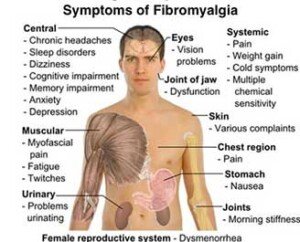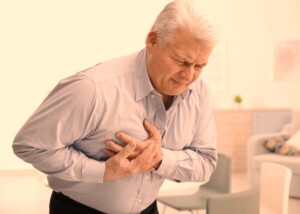
Fibromyalgia may actually be the cause of your shortness of breath and tight chest, so here’s what a top FMS doctor says you can do about it.
“Shortness of breath, or a sense of breathlessness, sometimes associated with chest tightness is a common symptom in fibromyalgia,” says Jacob Teitelbaum, MD, medical director of the Fibromyalgia and Fatigue Centers nationally, and author of “The Fatigue and Fibromyalgia Solution.”
There are three main categories of breath shortness in ibromyalgia, says Dr. Teitelbaum:
Exertion-caused shortness of breath and/or chest tightness
This may be angina and thus requires testing by a cardiologist. “Once heart problems or lung problems are ruled out,” says Dr. Teitelbaum, “then treatment with ribose, coenzyme Q 10, and acetyl-L-carnitine can help.”
Feeling like you can’t take a deep enough breath, with no accompanying anxiety or dizziness?
“This is very common and likely comes from tight muscles in the chest,” says Dr. Teitelbaum.
“An excellent study over 15 years ago by the acupuncturists and physician Neoh Aum Choo, MD, showed that three acupuncture points at the base of the skull on each side could relieve this sense of breathlessness in fibromyalgia,” continues Dr. Teitelbaum.
“Simply putting pressure on, or massaging, these points can be very helpful in relieving the feeling of shortness of breath.”
Hyperventilation
“When the shortness of breath is associated with feeling of inability to take a deep enough breath, numbness and tingling in the fingers and especially around the lips, and anxiety,” begins Dr. Teitelbaum, “it most often comes from hyperventilation.
“This is basically a severe anxiety attack, where feelings that have been buried earlier bubble to the surface during periods of relative calm.”
This explains why these attacks typically occur when you are relaxed watching TV or reading—stress-free activities.
“Taking rapid deep breaths for 30 to 60 seconds will dramatically flare symptoms confirming the diagnosis,” continues Dr. Teitelbaum.
“Unfortunately, this can also trigger a full-blown panic attack.” Thus, it’s advisable to do this at home.
“Doing calming exercises, as well as letting your stomach expand out at the end of each breath will allow more air into your lungs and can also help end the hyperventilation attack.”


 is a board certified internist and nationally known expert in the fields of fibromyalgia, chronic fatigue syndrome, sleep and pain.
is a board certified internist and nationally known expert in the fields of fibromyalgia, chronic fatigue syndrome, sleep and pain.
























